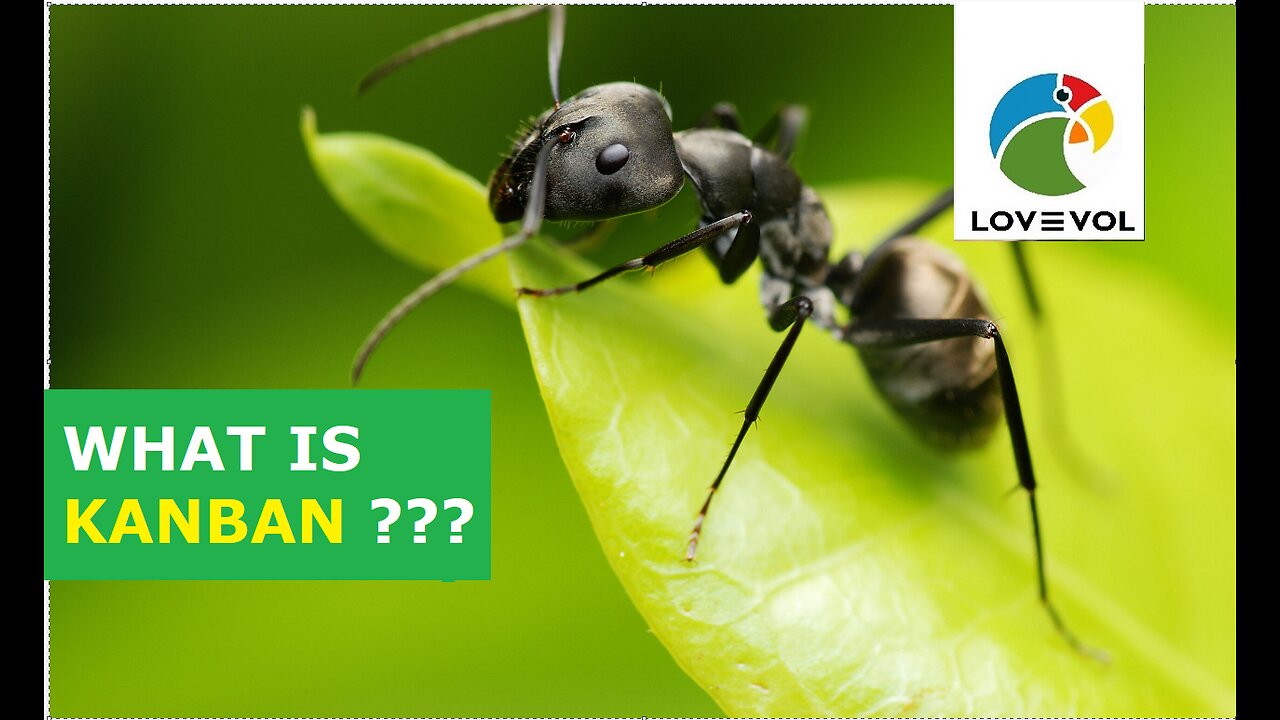Premium Only Content

What is Kanban ? how the kanban methodology works? Project management. See example
1. download: https://workupload.com/file/tsCMJgNXbXa
2. unzip
3. open and start
login: human
password: human
wiki:
Kanban (Japanese: カンバン and Chinese: 看板, meaning signboard or billboard) is a scheduling system for lean manufacturing (also called just-in-time manufacturing, abbreviated JIT).[2] Taiichi Ohno, an industrial engineer at Toyota, developed kanban to improve manufacturing efficiency.[3] The system takes its name from the cards that track production within a factory. Kanban is also known as the Toyota nameplate system in the automotive industry.
In kanban, problem areas are highlighted by measuring lead time and cycle time of the full process and process steps.[4] One of the main benefits of kanban is to establish an upper limit to work in process (commonly referred as "WIP") inventory to avoid overcapacity. Other systems with similar effect exist, for example CONWIP.[5] A systematic study of various configurations of kanban systems, such as generalized kanban[6] or production authorization card (PAC)[7] and extended kanban,[8] of which CONWIP is an important special case, can be found in Tayur (1993), and more recently Liberopoulos and Dallery (2000), among other papers.[9][10][11][12][13]
A goal of the kanban system is to limit the buildup of excess inventory at any point in production. Limits on the number of items waiting at supply points are established and then reduced as inefficiencies are identified and removed. Whenever a limit is exceeded, this points to an inefficiency that should be addressed.[14]
Task management is the process of managing a task through its lifecycle. It involves planning, testing, tracking, and reporting. Task management can help either individual achieve goals, or groups of individuals collaborate and share knowledge for the accomplishment of collective goals.[1] Tasks are also differentiated by complexity, from low to high.[1]
Effective task management requires managing all aspects of a task, including its status, priority, time, human and financial-resources assignments, recurrence, dependency, notifications,etc. These can be lumped together broadly into the basic activities of task management.
Managing multiple individuals or team tasks may be assisted by specialized software, for example workflow or project-management software, and such software may sometimes be referred to a productivity system.[citation needed]
Task management may form part of project management and process management, and can serve as the foundation for efficient workflow in an organization. Project managers adhering to task-oriented management have a detailed and up-to-date project schedule, and are usually good at directing team members and moving the project forward.[2]
-
 1:49:21
1:49:21
Film Threat
4 hours agoBEST AND WORST OF 2024 + SQUID GAME SEASON 2 | Film Threat Livecast
18.6K -
 1:06:04
1:06:04
The Big Mig™
18 hours agoGlobal Finance Forum Powered By Genesis Gold Group
18.7K2 -
 34:38
34:38
Tudor Dixon
3 hours agoThe Changing Landscape Between Tech and Politics with Mike Benz | The Tudor Dixon Podcast
12.5K1 -
 2:23:58
2:23:58
Matt Kohrs
14 hours agoRumble's Stock Is EXPLODING!!! || The MK Show
68.6K6 -
 1:57:47
1:57:47
LFA TV
16 hours agoBOMBSHELL FINAL REPORT: BIDEN ADMIN SUPPRESSED WUHAN LAB LEAK | LIVE FROM AMERICA 12.27.24 11am EST
36.7K4 -
 43:07
43:07
Grant Stinchfield
2 hours ago $2.68 earnedWe Built it... China Controls it... Trump Will Take it Back!
15.1K7 -
 35:05
35:05
Rethinking the Dollar
2 hours agoTime to Pay the Piper! Debt Refinance Crisis Coming in 2025
17K2 -
 52:34
52:34
PMG
16 hours ago $3.81 earnedHannah Faulkner and Steve Friend | EXPOSE THE FBI CORRUPTION - KASH PATEL
16.1K8 -
 2:58:58
2:58:58
Wendy Bell Radio
9 hours agoOn Day One
86.3K75 -
 1:59:27
1:59:27
Jeff Ahern
5 hours ago $3.86 earnedFriday Freak out with Jeff Ahern (6am Pacific)
29.9K1